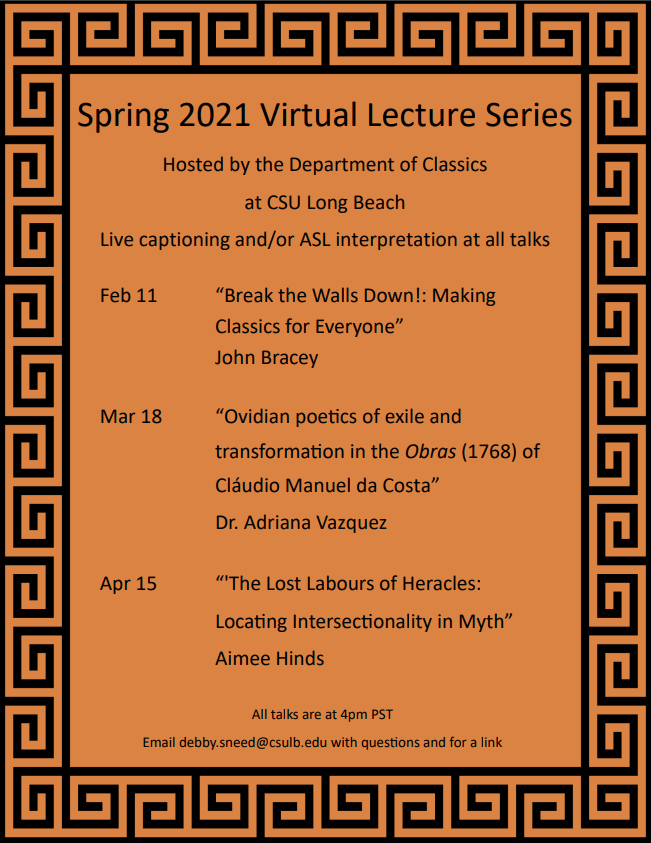I was a straight “F” student in high school, struggled through middle school, and was pretty lost in elementary school. It wasn’t until I was admitted into an experimental program, that took failing high school students and had them attend community college instead, that I experienced what it felt like to “achieve” in school. Despite being a successful student from then on throughout college and grad school, I never felt any different than I did when I was flunking out of high school. I still assumed that all of my answers were wrong, my insights were misunderstandings, and that I was moments away from being outed as intellectually inferior. If I’m being brutally honest here, I still feel this way.
Now in my 15th year as a Latin teacher, I find myself focusing primarily on the experience of struggling students like I was. I think about all of the different barriers to access and try to address them preemptively. I am afraid of making a student feel like I felt when I was in their place. If I make my class a ramp, everyone can access it. If I make my class a staircase, I’ll leave some students out. I can’t do that. I have been that left-out kid before, so it’s easy for me to think that way. Because I’ve had that experience, I can’t think like a lifelong overachiever.
I can’t imagine…
- Seeing fellow students as obstacles to my success.
- Growing angry that a class can’t move faster and be more “challenging” because fellow students are slowing me down.
- Basing my sense of success as a student on the failure of others.
- Insisting that my own desire for more should override the needs of those who don’t have enough.
- Acting rude and disrespectful to a teacher because they are prioritizing equity over their own desire for superiority.
- Not caring at all about others.
Yet every single year I encounter all of the above. Every year it hurts my feelings and dampens my optimism as a teacher. Every year I fall into an autumn depression after a student decides to tell me how much they hate my class because it isn’t “challenging” enough or doesn’t “move fast enough”. Every year I have to remind myself that I’m here to make class work for everyone. The bus would get from a to b a lot faster if it didn’t take the time to safely transport people in wheelchairs, but who cares? Would you yell at the bus driver to leave those people by the side of the road so that you get home a little bit earlier? Of course not! But that approach to life is precisely what the “overachiever” mindset teaches.
I have the unfortunate advantage of having been that student that the overachievers despise, look down upon, and consider nothing more than dirt on their shoes to be scraped off and discarded. But that is not a prerequisite to evicting the overachiever mindset and replacing it with a focus on equity. There is no way to achieve equity without irritating those who are most advantaged by the inequitable status quo. We need to remind ourselves of this reality to be caught less off guard when it inevitably happens.
Now if you’ll excuse me, I must sink into my customary, but temporary, annual depression…

